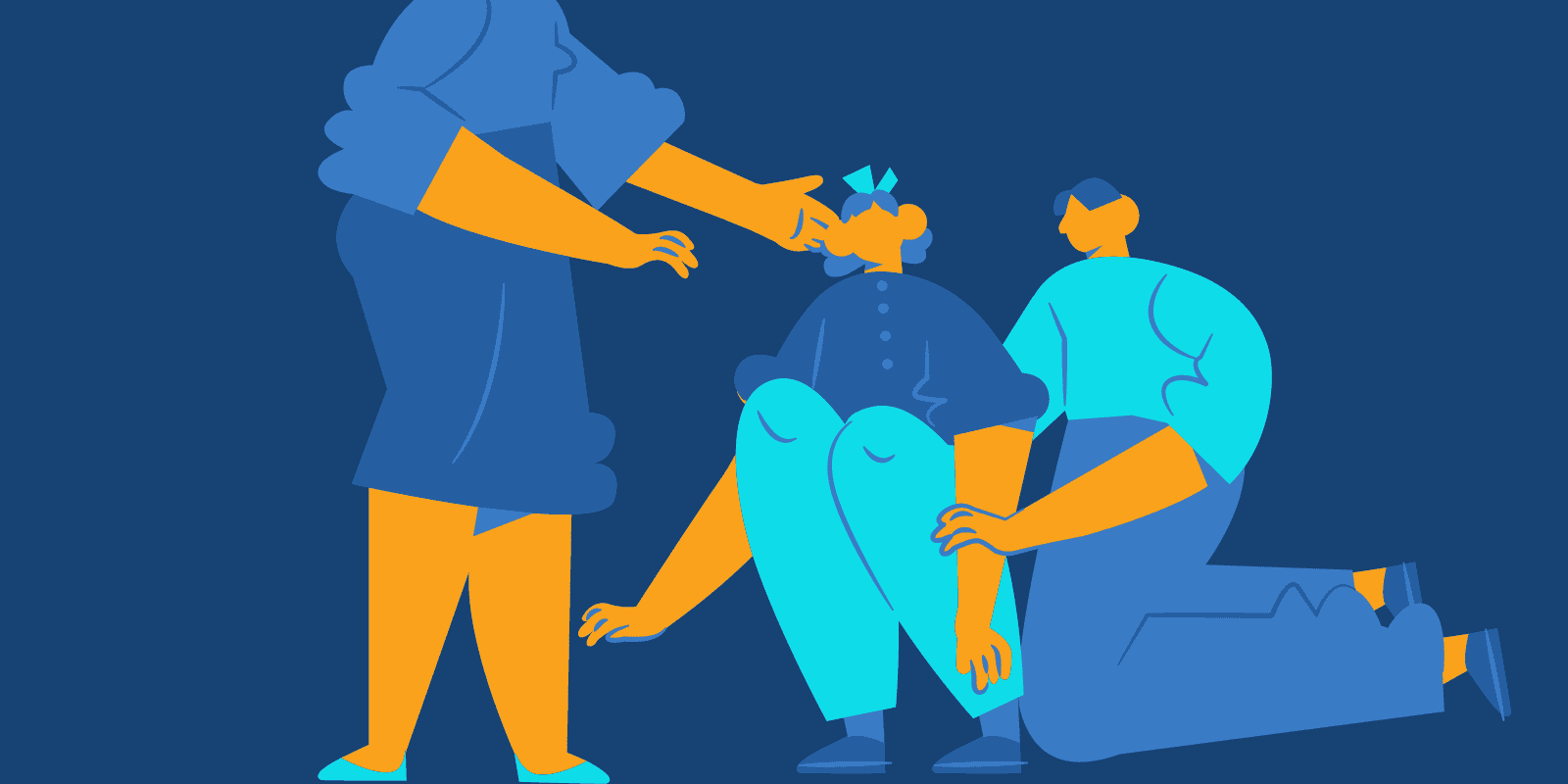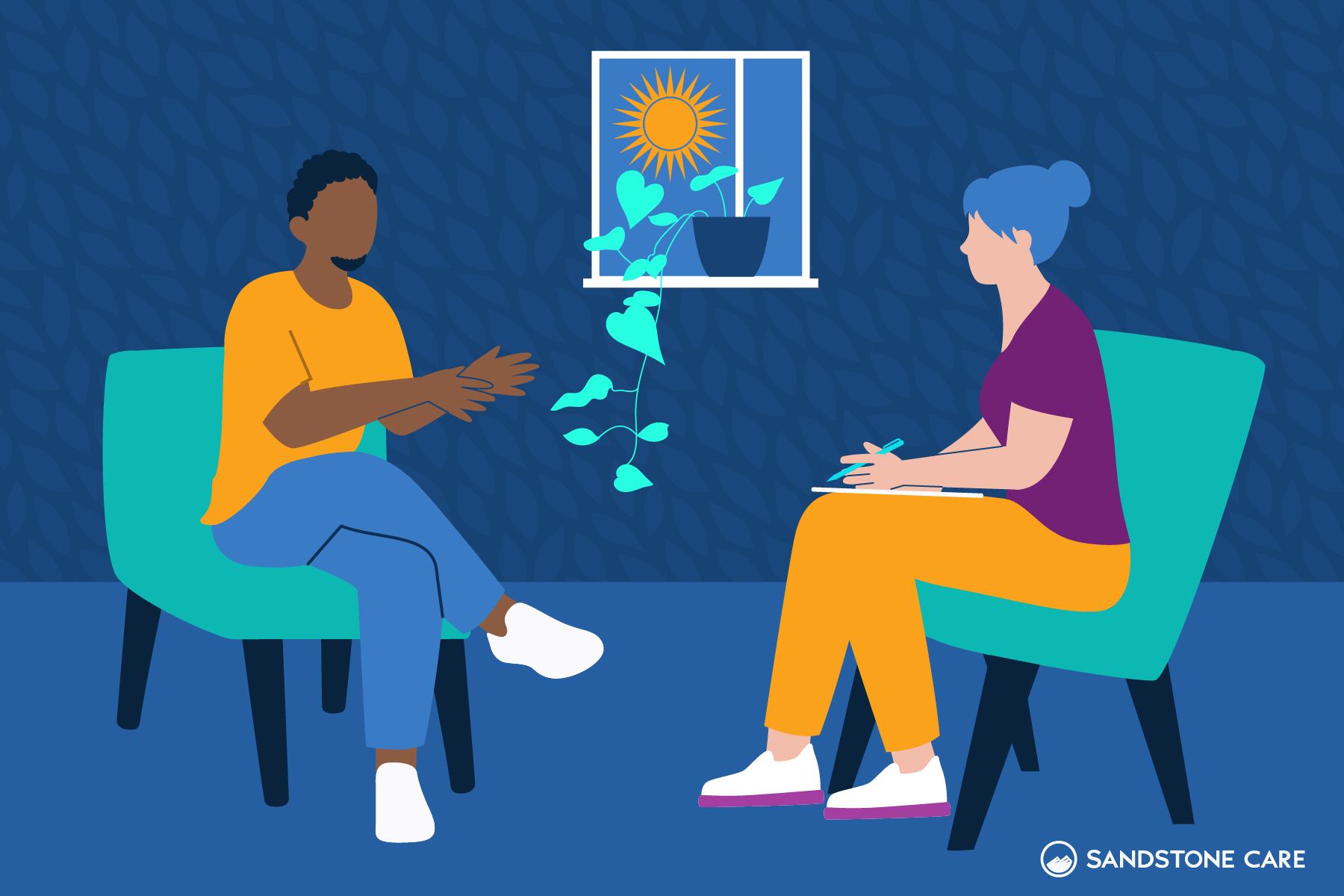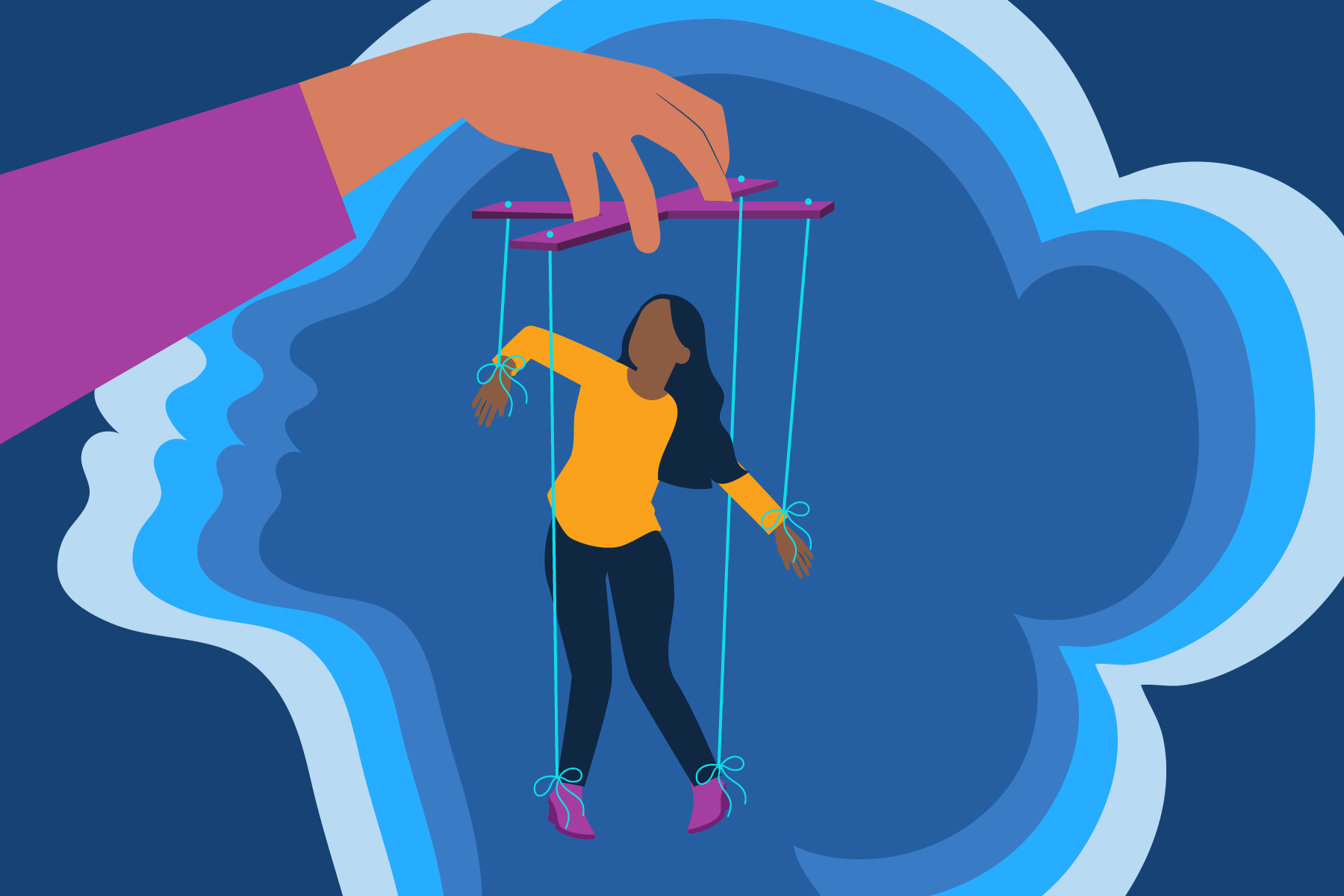
What Does Mental Health Do to Teenagers?
Mental health is important throughout your whole life.
During the teenage years, there are a lot of changes happening in every aspect of your life. You now have the responsibility to make more decisions and think seriously about school and your future while dealing with relationships between family and friends.
All of these factors may become stressful and bring about difficult feelings.
Mental health involves your emotional, psychological, and social wellness.
When someone has problems with mental health, it could impact how they handle stress, relationships with family and friends, and the decisions you make.
Having problems with mental health doesn’t necessarily indicate a mental illness, but it is important to look out for the warning signs, so it is not overlooked and ignored.
Many people with mental illnesses go without treatment because they are not sure what the signs are or do not understand the full meaning of mental illness. They may also not know where to get help.
According to Youth.gov, high school students struggling with mental health disorders are more at risk of dropping out of school, abusing drugs and alcohol, and attempting suicide.
Mental health is important for your overall health because it can impact your physical health. Many mental health disorders can put you more at risk of heart disease and diabetes.
Changes in your mental health and feeling sad does not necessarily mean you have a mental illness; however, it is important to look out for warning signs if you or a loved one is struggling with poor mental health conditions.
Teenagers experience many different factors that can impact their mental health.
Factors such as self-esteem, family problems, social media, and experiencing issues in a larger aspect, like a pandemic, can affect mental health.
Despite these issues, mental health disorders are not permanent. With all the changes that come in the teenage years come developmental and behavioral changes. Feelings of stress and pressure will not last forever.
It is important to know that there is a wide array of treatment options specialized to fit your teen’s needs.
With the help of family members, treatment, and support networks, teens can learn to navigate and overcome mental health disorders.

What Are Common Mental Health Issues in Teens?
The most common mental health issues among teens include depression, anxiety disorders, and behavioral disorders.
According to the World Health Organization, anxiety disorders have the highest prevalence among 10 to 19-year-olds.
Occasional anxiety is common when it comes to stress, but someone with an anxiety disorder has those feelings that never go away or even get worse over time. Anxiety can cause extreme feelings of worry and fear.
Sometimes, children who weren’t anxious before start to feel anxiety as teens. This can be from worries about what people think of them due to changes in their bodies or self-esteem issues.
It can also lead teens to isolate themselves with fear of socialization and judgment. Many teens may try to hide that they have anxiety, and symptoms may be different based on the person.
It is important to get help when these feelings seem like they are not going away or are affecting their everyday abilities. Anxiety can lead to other problems such as depression or substance abuse.
Another common mental health issue in teens is depression, which shares some of the same symptoms as anxiety, such as changes in mood.
There are different types of depression, but they all involve major feelings of sadness, loss, or anger that affect someone’s everyday life. Depression can also lead to a loss of interest in things you once enjoyed and lead to other problems like self-harm and substance use.
Depression can impact a person’s relationships physical health and leads to suicidal thoughts.
Bipolar disorder is associated with depression as it involves extreme highs in mood followed by depressive lows.
Bipolar disorder can also cause shifts in energy levels, concentration, and complete everyday tasks. Some episodes of bipolar disorder may also be associated with suicidal thoughts.
Attention-Deficit/Hyperactivity Disorder (ADHD) is common among adolescents and teens.
According to the NIH, ADHD affected nearly three times as many male adolescents from 13 to 18 years, compared to females in the same age group.
ADHD is a behavioral disorder that includes attention difficulty, impulsivity, and hyperactivity. It can cause difficulty in school, building relationships, and for a person’s self-esteem.
Eating disorders are more common in older teenagers.
Examples of eating disorders include binge eating, anorexia nervosa, and bulimia nervosa.
Anorexia is characterized by a distorted perception of one’s body and a fear of being overweight. Teens with anorexia may try to starve themselves or over-exercise to maintain a below-normal weight.
Bulimia can be life-threatening. It involves a pattern of binge eating, followed by methods to avoid gaining weight. Typically, people purge or vomit, but other methods include fasting or excessive exercise.
According to the National Institute of Mental Health, eating disorders were more than twice as prevalent in female adolescents than males.

How Do I Know if My Teenager Has a Mental Illness?
If you believe your teenager has a mental illness, it is important to talk to your teen about what issues or feelings they may be dealing with.
Try to be open, non-judgmental, and supportive so that your teen feels comfortable sharing their feelings with you. However, be sure not to force them to talk about things they are not ready to discuss.
Paying attention to your teenager’s behavior can help you better notice warning signs of mental illness.
Sudden, dramatic changes in your teen’s behavior can indicate mental illness, such as; self-esteem issues or being hyper-aware of their appearance, excessive sleep or insomnia, or a sudden decline in school or extracurriculars.
Changes in their personality can also be a warning sign that your teen may be struggling with mental illness. Aggression or excessive anger is common if they are dealing with difficult emotions.
Feelings of hopelessness, sadness, and wanting to be isolated may also indicate an issue, along with signs of self-harm or substance use.
It is important to know that mental illnesses are treatable, and family members and parents play a big role in the process. Being attentive, open, and supportive with your teen will help them throughout treatment.

What Causes Teenage Mental Illness?
According to MedlinePlus, more than half of all Americans will be diagnosed with a mental disorder at some point in their life.
There is not a definitive cause for mental illness; however, some factors that may put teens more at risk of having one includes:
- Genetics and family history
- Experiencing traumatic life experiences
- History of physical, mental, or sexual abuse
- Traumatic brain injury
- Exposure to toxic chemicals or viruses during mother’s pregnancy
- Ongoing medical conditions
- Chemical imbalances in the brain
- Alcohol and drug use

What Are Some Resources for Mental Health?
Some resources that are available to get help for mental health include:
- National advocacy organizations ( National Institute of Mental Health, National Alliance on Mental Illness, Mental Health America)
- National Suicide Prevention Lifeline: 1-800-273-8255
- Local county’s department of health
- Hospitals or medical centers with psychological services
- Departments of psychology in schools
The Substance Abuse and Mental Health Services Administration also has a Behavioral Health Treatment Services Locator that is a confidential source of information for people in the United States seeking help with substance abuse or mental health conditions.

What Are Some Warning Signs of Mental Illness in Teens?
Each illness has different warning signs; however, common ones in teens may include:
- Trouble in school; school performance, excessive absence or tardiness, difficulty paying attention
- Extreme mood changes
- Fluctuations in diet or eating habits; poor appetite, abnormal eating patterns
- Hyperactive behavior
- Severe worry or anxiety; not wanting to go places or socialize
- Feeling angry or easily irritated
- Long period of grief
- Changes in sleep patterns; sleeping very little or being extremely tired
- Repeated use of drugs or alcohol
- Difficulty relating to others
- Frequent physical ailments such as; stomach aches and headaches
- Frequent nightmares
- Suicidal thoughts

What Can Parents Do to Help?
If your teen or a loved one is struggling with their mental health, the first step is to listen and offer support.
Educate yourself on mental health conditions and mental illnesses so you can have more of an understanding and offer better help. Knowing more can help you recognize warning signs and support them with accurate knowledge.
If you think that your teen is struggling with a mental illness, contact their pediatrician or health care provider to get professional support and correctly diagnose their conditions. Many people and teens with mental illnesses go without treatment.
It doesn’t hurt to talk to a doctor or pediatrician to get advice and help, even if you are unsure it is a mental illness or not.
After consulting with a provider or pediatrician, you can then get a referral for a mental health professional. They will help decide the best course of action based on the persons’ needs and go from there.
Outpatient treatment is common in adolescents as it allows them to receive treatment at home and still keep up with school. Having a good environment and support system is important in the treatment and recovery process.
For more severe cases, inpatient treatment may be the best choice for your teen. Inpatient treatment involves 24-hour care and is the most intensive form of care. It is best for patients who need monitoring and a safe environment.

What Is The Difference Between Mental Health and Mental Illness?
Mental health and mental illness are commonly mistaken for the same thing.
Mental health involves your emotional, psychological, and social well-being. It impacts the way people act, feel, and think. Mental health also plays a role in managing stress, building healthy relationships, and making decisions.
Mental health and mental illness are not the same.
Mental illness refers to conditions that affect mood, thoughts, and behavior.
Someone with poor mental health does not necessarily have a mental illness or have to be diagnosed with one. Likewise, a person with a mental illness can still experience mental well-being at times.
The misunderstanding of the two terms can be troublesome. It can lead someone to overlook the warning signs that someone may need help. Often, people with mental illness may not get help because they do not seek a proper diagnosis.
The confusion between the two terms can also lead people to be dismissive or judgemental of others struggling with mental illness.

What Are the Treatments for Teenage Mental Health?
There are many different forms of mental health care available for teenagers.
The type of treatment provided depends on the mental health conditions of the individual and what mental illnesses they may be struggling to manage.
Youth can receive treatment in several settings, from treatment centers to school settings or medical settings.
Behavior therapy is common for teens and adolescents as it helps teach them and family members how to strengthen positive behavior.
Cognitive-behavioral therapy (CBT) is a form of talk therapy that focuses on identifying and changing thought patterns to improve behavior and better cope with emotions.
It teaches teens better coping mechanisms for difficult emotions and better communication skills within relationships with friends and family.
CBT is commonly used to treat conditions such as; addiction, anxiety, bipolar disorder, depression, eating disorders, and personality disorders.
Peer support is also an important part of treatment for teens. Peer support could be offered in one-on-one, group sessions, or both. This support helps peers create goals and teaches a person better ways to help deal with their mental disorders.
Support groups can be helpful throughout the treatment process as well.
Support groups give teens a chance to share their experiences and, in doing so, can relate to each other, learn from others’ experiences, and see from a different perspective.
Care coordination involves the deliberate planning and organization of patient care and activities and sharing this information with those involved in the patient’s treatment process.
This type of care communicates the needs and preferences of the patient at the right time to provide appropriate and effective treatment.
Care coordination may include federally qualified health centers, inpatient psychiatric facilities, schools, juvenile and criminal justice agencies, or hospital outpatient clinics.
In some cases, medication may be prescribed by your teens’ pediatrician to treat certain mental health conditions. Medication is typically combined with other forms of treatment like counseling to provide the most effective course of action.

How Can Parents Help Their Teenagers With Mental Health?
One way is being encouraging and open about sharing their feelings.
Simply asking how they are or about their day can show that you care and open up new conversations. It can also help them be more comfortable to come to you when they need it.
Teaching them healthy lifestyle habits and ways to communicate can help build a strong foundation for their mental health.
Listen to what they have to say and be nonjudgemental.
Sometimes people want to be heard. Alternatively, it can take a lot for someone to open up. When your teen shares their feelings or experiences, it could be uncomfortable to talk about or difficult to hear. Try to be understanding and reassuring.
Offer support when needed.
Although the teenage years are a time of growing independence, it is important to have support along the way. Making an effort to show that you’re there when they need you and allowing them to have their own space can create better balance in your relationship.
There is also a difference between being supportive and enabling. Being supportive involves being patient, listening, and being present. Whereas enabling allows them to continue unhealthy habits or make excuses for them.
Work together, not against each other.
It can be hard to communicate when two people are stressed. Try not to have discussions when you are angry and take time to cool down. Being honest with your teen can also help create a better understanding within the relationship.
Understand that it is also normal for teens and anyone to go through stress and deal with difficult emotions in life.
Being patient with yourself and your teen can help avoid another stressor in both you and your teen’s life and gives the both of you the chance to communicate more effectively.
Take care of yourself and your mental health.
If you are not taking care of yourself, it will make it difficult to take care of another person. It also allows you to be a good example to your teen and more mentally capable of helping them when they need you.
Mental health is important in all stages of life. Mental illnesses can impact performance in school, relationships, and self-esteem. Sandstone Care helps support teens and young adults with substance use and mental health disorders. Call (888) 850-1890.






